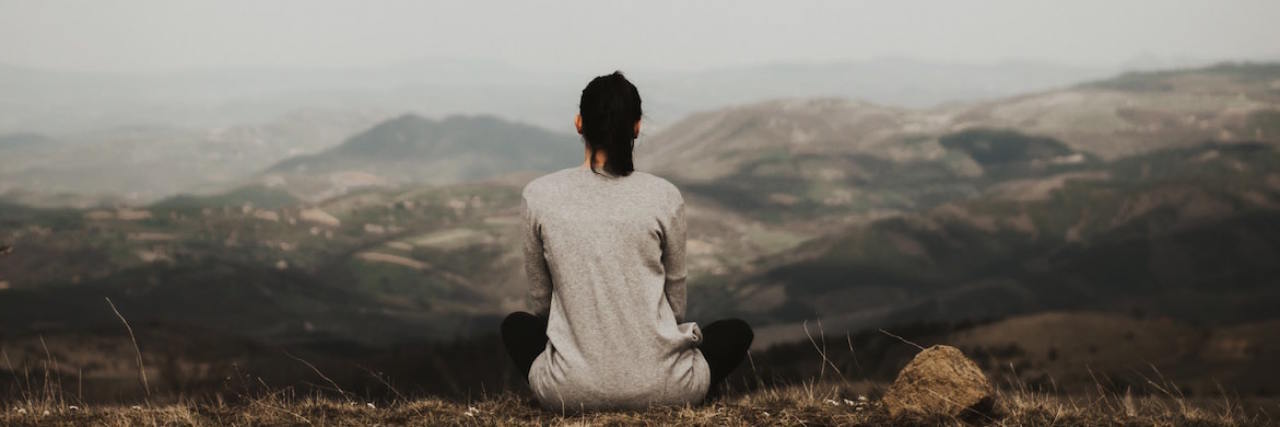What I Worry About Most When Considering Becoming a Parent With Chronic Illness
Editor's Note
Join The Mighty’s Spoonie Life Hacks group to get tips for tackling everyday tasks from people living with chronic illnesses — or to share your own hacks!
As a child, I was already aware that not every woman could have children. I knew sometimes families adopted and that some adults were childless because they couldn’t get pregnant. By the time I was in my 20s, I was already distinctly aware of having a biological clock. I also knew about the slew of problems that could lead to infertility. Now that I am approaching my 30s, many of my friends and friends of friends are struggling to get pregnant and are considering IUI, IVF and adoption.
I have, in some ways, always been prepared for the fact that getting pregnant might not be possible, or at least as prepared as you can be for that type of loss. I started having conversations almost a decade ago about what I would do if I couldn’t have children of my own. In fact, I knew in my early 20s that being pregnant was not the priority for me — but instead simply being a parent was my goal. Adoption was always my backup plan, and often I even felt it could possibly be my method of choice for becoming a parent. I felt I had been properly warned about possibility of being infertile. But what no one had ever prepared me for was the possibility of not being able to parent.
Four years ago, I was running half marathons and was a passionate bike commuter completing my master’s degree. Three years ago, I stopped feeling as well as I had the previous year and slowed down my activity. Two years ago, I took a leave from work that never ended because it was, and still is, hard to get out of bed because of pain and fatigue.
As I work tireless on curing or at least improving my health, I watch my friends and family members. I watch them as they parent their toddlers, endure and enjoy pregnancy, attempt to procreate and explore options like IVF and adoption.
While I wait I am aware of my biological clock, but more so, I am terrified that my chronic illness may take away my ability to parent — no matter if I am fertile or not.
If this condition is permanent, it might mean I am not capable of holding a child or being able to watch them play. I know that being in the same room as them may give me a headache and that I might not be able to provide consistent home cooked meals on a bad symptom day. I am aware I might not be able to complete school pick-ups and drops-off if I am too dizzy to drive. I also recognize I might have to miss ballet recitals, baseball games and graduations because evenings are often too hard.
I am not necessarily worried about those specific things though — I have been inspired by other illness warriors who have proven that there are creative ways to parent. I know it is not a question of if I can parent, but instead a question of if I can parent without outside support. Or better yet, if can I parent in the way I have always wanted.
When it comes to parenting with a chronic illness, what I worry about more than anything else is myself. How do I make the choice to become a parent when I struggle each day to have a quality life for myself? What will happen to my mood if my parenting duties go too far beyond my capabilities? Is it fair to myself to risk my already precarious wellness in order to become a parent? Is it fair to a child to make the choice to be parent if I do not know if I will be able to keep my head above water? How do I put myself first when I am choosing between my health needs and my desire to be a mom?
I was prepared as I could be for the tragic loss of not being able to get pregnant — but no one warned me that my ability to parent might be compromised. How do I make choices about becoming a parent, when my own ability to engage in parenting is so out of my control?
I think the answer lies in trusting my own self: trusting that I know when to seek advice from others and when to follow my intuition. Trusting I can be honest with myself about my wants, needs, desires as well as limitations. Trusting I am capable of living with grief and sadness and worry. And most of all, trusting that I can make a beautiful life for myself no matter what I choose, or what is chosen for me.
Photo by Milan Popovic on Unsplash

